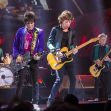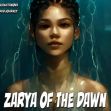The rise of AI digital image-generating applications and software has made it easy for individuals and businesses alike to create masterfully crafted artwork in mere seconds. For some artists, however, these groundbreaking tools are nothing more than copyright violations against actual, human artists.
As these AI image generators continue to grow in popularity, so too do the lawsuits. Popular AI image generators including Stability AI, Midjourney, and DeviantArt, are at the center of class action copyright lawsuits filed by California artists Karla Ortiz, Kelly McKernan, and Sarah Andersen. The artists filed their lawsuit in the U.S. District Court of the Northern District of California in early January.
Other lawsuits have also trickled in accusing the AI image generators of violating copyright law and using original artwork from human artists without first securing proper licensing.
The three named AI image generation tools allow users to input a string of text which will then output an image describing the text. For example, users can ask the tools to “create a picture of a black cat sitting on the moon in the style of Vincent Van Gogh.” While the image that is generated is completely artificial and original in content, the plaintiffs accuse these AI tools of using original works by other artists to train the software in order to develop these computer-generated images. In many cases, the image generated by the computer is incredibly detailed, bearing no indication that it was created by a computer and not an actual artist.
The technology behind the AI tools is incredibly complex. At the heart of the technology is the concept of “Deep Learning,” a computer's ability to analyze billions of data pieces to create an original work that is nearly identical to the quality of a human's content. This work can be in the form of blog posts, news articles, and artwork or digital images. While this technology has been in developmental phases for over a decade, it's only now become a commercialized tool accessible by everyday businesses and individuals for their personal use.
The architecture of the three AI image generators is built on a software library called Stable Diffusion. The plaintiffs accused this software library of training the AI image generators on the artwork of tens of thousands of artists through a process called diffusion. As part of the diffusion process, the computer can recognize different attributes of a piece of work and then reconstruct a new piece of work using those unique attributes. Without actual artwork to train on, this software would have been unable to teach the image generators how to create an original image based off of a user's input.
The lawsuit brought by the California artists accuses this software of creating “derivative works” or artificially intelligent original works which incorporate too much of the original artwork used to train the software.
In the process of creating these derivative works and offering them to the public for private or business use, this AI art generation software could disrupt and damage the industry of actual artists.
Not long after the California artists filed their lawsuit, American visual media company Getty Images also filed its own lawsuit against Stability AI. In nearly identical claims, Getty Images accuses the company of using millions of digital artwork pieces owned by Getty Images and training their AI art generators on this artwork without first securing proper licensing.
“Getty Images believes artificial intelligence has the potential to stimulate creative endeavors. Accordingly, Getty Images provided licenses to leading technology innovators for purposes related to training artificial intelligence systems in a manner that respects personal and intellectual property rights,” the company shared in a statement. “Stability AI did not seek any such license from Getty Images and instead, we believe, chose to ignore viable licensing options and long-standing legal protections in pursuit of their stand-alone commercial interests.”
Under Title 17 of the US code, the intellectual property of authors including artists, singers, writers, and others is protected in a manner that requires permission from any other business or entity that wants to utilize that intellectual property.
It is legal, however, for individuals or companies to use small portions of an original work without violating copyright law. This is permitted under the fair use doctrine. However, certain conditions must first exist in order for fair use to be applied.
It is under these laws that the California plaintiffs and Getty Images are building their lawsuits. The proposed class action lawsuit filed by the California artists accuses the companies of violating copyright law, the Digital Millennium Copyright Act, and the Unfair Competition law.
The lawsuit explains, “Though the rapid success of Stable Diffusion has been partly reliant on a great leap forward in computer science, it has been even more reliant on a great leap forward in appropriating copyrighted images.”






